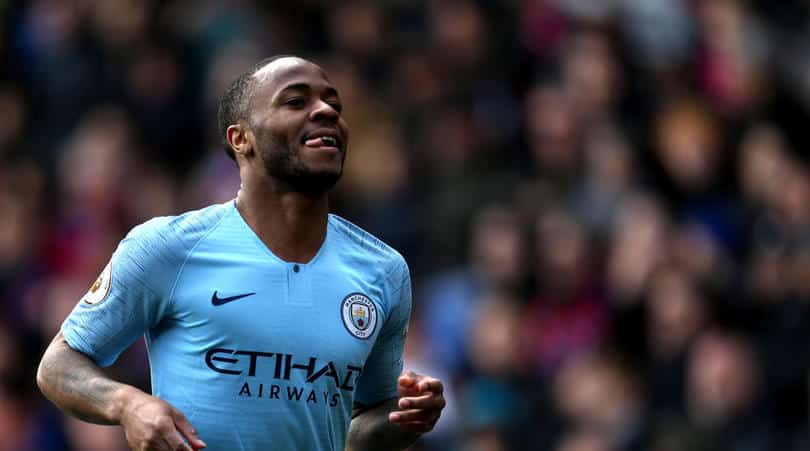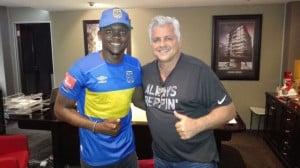Raheem Sterling has been in discussions over a potential ambassadorial role to help combat racism in football.
The Manchester City forward has been an outspoken leader against the spiralling increase of racist incidents in England and across Europe, fronting a Premier League anti-racism campaign earlier this season.
Sterling, 25, has been subjected to abuse at Chelsea and while playing for England over the past two years and was assaulted outside City’s training ground in 2017. He has also criticised the media coverage of young black players and says that more footballers are feeling confident to speak out about injustices.
‘Even after I said what I said I have seen a lot more players, voicing their opinions and shedding light on the situation,’ he said in conversation with United States footballer Megan Rapinoe on his YouTube channel.
‘It’s one of those where we have to be all together, it should not be an individual thing to do. This is something we have to do as a collective to get our voices heard. Since then we have been pushing.
‘I do have a few more meetings with the league about an ambassador role. It’s one of those where we’re gradually getting there but it’s not something that gets fixed overnight, but we’ll keep pushing and keep trying.’
In 2018, Sterling took to social media to call for media outlets to consider coverage of young black players that could lead to the propagation of hate speech, comparing contrasting reports of contracts signed by City teammates Tosin Adarabioyo and Phil Foden.
The England international has also received criticism in the media for his lifestyle and says accusations of being ‘materialistic’ were unfair.
‘I always try to use a negative and make it into a positive, but when I started to get things about materialistic things that we’re being referred back to me and people labelling me, that’s what upset me,’ he said.
‘I don’t have a problem with you talking about my football, if I had a good game or bad game, that doesn’t bother me, of course I want to have a good game and if I don’t have a good game I will be upset.
‘But at the same time, it felt like a constant attack for no valid reason. At times I was really, really low. I’m a person that I would even say stuff to my mum or my girlfriend but I take it in and just keep moving.
‘I just thought to myself: “If I know how much it’s affecting me, in terms of the wordings that people are using to basically put me in a group of people, what would happen to a 17-year-old kid that’s not probably as mentally as strong as I was?’”
Sterling believes it can be difficult for footballers to speak out but hopes that the climate is beginning to change so players’ voices are heard.
‘With football over here, a lot [is about] your personal life,’ he added. ‘Everyone just wants to have an easy life – a smooth, sailing ship and not really have any commotion. I think this is one of the reasons that triggers a lot of players to not just say stuff.
‘I feel that if it is actually something you really, truly do believe in, it’s one of those that you do need to speak up and let your voice to be heard. What happens in the next five-10 years or 10-15 years? Is this going to continue to carry on?
‘I always refer back to a 17-year-old me when I think about stuff like this is. If I was 17 again, what would I like to happen? That’s all I try to do.’





